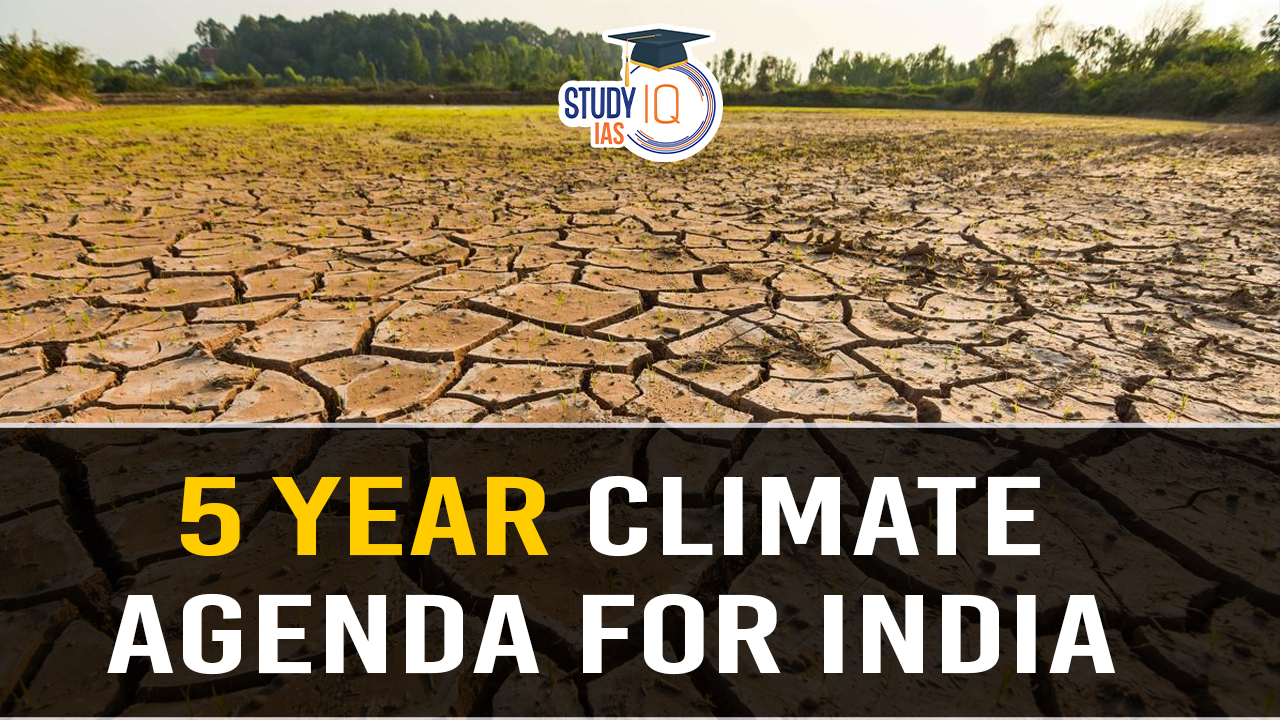Table of Contents
Context
- The Indian government needs to enhance India’s global climate leadership.
- India, having secured a seat at most international tables, must now showcase its prowess in climate action.
India’s Climate Transformation
- Past Decade Achievements: Significant climate intent and progress.
- Transitioned from a hesitant participant to a bold leader in global climate discourse.
- Established global institutions like:
- International Solar Alliance
- Coalition for Disaster Resilient Infrastructure
- Global Biofuels Alliance
- Shaped the Green Development Pact during its G-20 presidency.
- Ambitious Targets
- Net-zero target by 2070.
- Nationally Determined Contributions (NDC) milestones.
- Shift from emission-intensity-based targets to absolute emission reductions.
- Domestic debate on sustainability involves policymakers and the private sector.
- Sustainability-linked Economic Policies: Creation of an Indian emissions carbon trading scheme.
- Scheme intended to operate for 30-40 years.
Next Five Years: Strategy and Goals
‘Go Higher’ – Enhancing Global Leadership:
- Potential to host significant international climate summits like the United Nations Conference of Parties in 2028.
- India should aim for major commitments in global negotiations:
- Agreement on no new investment in oil and gas after 2030.
- Significant commitments on adaptation finance for developing countries to tackle heatwaves, storms, floods, and droughts.
- Need to build consensus on contentious issues over the next four to five years.
- Emphasise the narrative of equity in international forums and create leadership space in global institutions for climate finance.
‘Go Wider’ – Broader Sectoral Targets:
- Beyond the power sector, India should set and communicate sectoral emission reduction targets:
- Focus on zero-carbon two- and four-wheelers in private mobility, benefiting both urban and rural areas.
- Promoting clean energy jobs and economic growth.
- Next NDC for 2035, due next year, is an opportunity to expand energy transition targets to other sectors.
‘Go Deeper’ – Sub-National Climate Action:
- Emphasise sub-national climate action and resilience:
- The Council on Energy, Environment and Water (CEEW) is aiding various states with net-zero plans.
- Collaborations with Tamil Nadu and Bihar for net-zero transition plans.
- Recommendations for deeper integration:
- Create a Centre-State coordination group.
- Incentivize State-level climate actions through the Sixteenth Finance Commission.
- Integrate scientific modelling capabilities in policymaking.
- Establish a unified data measurement, reporting, and verification (MRV) architecture at the State level.
- Ensure coordinated State-level actions while maintaining autonomy, with the Centre as an active facilitator.


 Serious Fraud Investigation Office (SFIO...
Serious Fraud Investigation Office (SFIO...
 Article 142 of Indian Constitution, Sign...
Article 142 of Indian Constitution, Sign...
 Pakistan-Occupied Kashmir (PoK): History...
Pakistan-Occupied Kashmir (PoK): History...





















